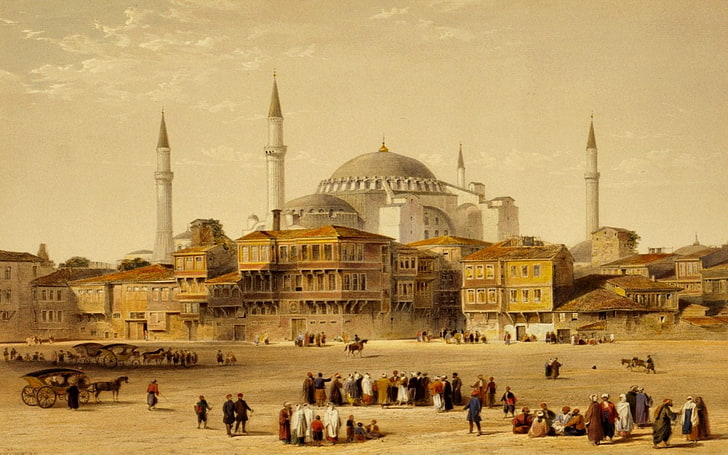Islamic history
Islamic history
Islam is the Arabic word for “submission,” meaning submission to God’s will. It is the debt of about 1.6 billion people worldwide as of 2010, according to the Pew Research Center, which also ranks monotheistic monotheistic religion as the world's fastest growing.
:History of Islam
The history of Islam through its various stages was marked by many events and matters, and it was distinguished by many features from others because of its connection with the final message that God Almighty revealed to His Prophet Muhammad, may blessings and peace be upon him. .
The time period extending from long to long period extends from long period to Europe region, long period from Asia region to West Asia, North Africa, long period to Andalusia. As of the Arab region you see in the region you see, which you see how much of the United Arab Emirates, the United Arab Emirates, the United Arab Emirates, the United Arab Emirates, the Arab Emirates, the authentic UAE. From the beginning, Islam was distinguished as more than one religion that regulates the relationship between God as a creator and between man as a creature, as most religions do.
The Messenger of Islam, Muhammad bin Abdullah, from the beginning, according to the teachings that he received through revelation, established Muslims in the form of a group that emerged since the days of Meccan persecution to develop into a society and similar to the state in Medina. And there in Madinah, the revelations continued to descend, regulating the relations of Muslim individuals (immigrants and supporters) between each other and with members of other religions (the Jews in Madinah). In addition to defining the human relationship with the Creator and nature, which makes it a religion with two sides: spiritual, religious, and socio-political.
؟How did Islam begin
Islam emerged from the small desert city of Mecca, located today in Saudi Arabia and surrounded by the Byzantine and Sasanian empires, in the early seventh century when the Muslim messenger, Muhammad, was revealed by King Gabriel.
Muhammad's revelation began in 610 when he was meditating in a cave on top of Mount Hira, outside Mecca. Muslims believe that this revelation is the word of God, transmitted by King Gabriel, and that it constitutes the Qur'an, the holy book of Muslims. The Prophet Muhammad only revealed the revelation to his wife, family members and close friends, and after more than two years he began spreading Islam publicly.
:Stages of the development of Islamic history
Islamic history has gone through several stages through which it evolved to form the most powerful empire that would bear Islam as a slogan and a way of life, among which we mention the following:
The dawn of Islam
The history of Islam began from the dawn of humanity when God sent His Prophet Muhammad, peace and blessings be upon him to the worlds, and the beginning of his call was in the Quraish in the Arabian Peninsula, where he called his close clan, so those who believed in him believed and others disbelieved in him. The Islamic call faced difficulties and hardships, as the Prophet remained in Mecca for thirteen years, which he harnessed in order to call to this religion, and the divine order came after that for the Prophet and Muslims to migrate to Medina to begin the phase of building the first Islamic state in Medina.
The first Islamic state
The Islamic call in Medina took another character, when he authorized the Muslims to fight and deter the aggressors, so the Holy Prophet prepared armies in order to spread and protect the Islamic call, so the battles of the Prophet and the Muslims were an example of sacrifice and giving.
The period of the Rightly-Guided Caliphate
When the Prophet, peace and blessings be upon him, passed away, the Muslims gathered to request that Abu Bakr al-Siddiq be chosen for his preference and he had preceded him in Islam, so as-Siddiq rose to resume the dissemination of the message and its headquarters were in the island. Then he completes the mission and sends armies to conquer the Levant, Iraq, Iran, then Egypt, and after him he comes with Othman bin Affan, may God be pleased with him, and he completes the conquests in Morocco and eastern Iran, then after him the Caliph Ali, may God be pleased with him, sealed the righteous justice with five years as an example, even if many pervaded the state.
Umayyad, Abbasid and Ottoman Caliphate
After the Rightly-Guided Caliphate came the Umayyad Caliphate, which took on the character of ownership, even if it was considered one of the golden eras of Islam, where the conquests were completed and the country expanded, and then the Abbasid Caliphate, which lasted for nearly seven hundred years, and then the Ottoman Caliphate, which lasted until 1923 when the Caliphate was overthrown, and the dream of the return of the Islamic Caliphate became A hope that motivates Muslims everywhere to return to Islam and Muslims their dignity and authority.

Comments
Post a Comment